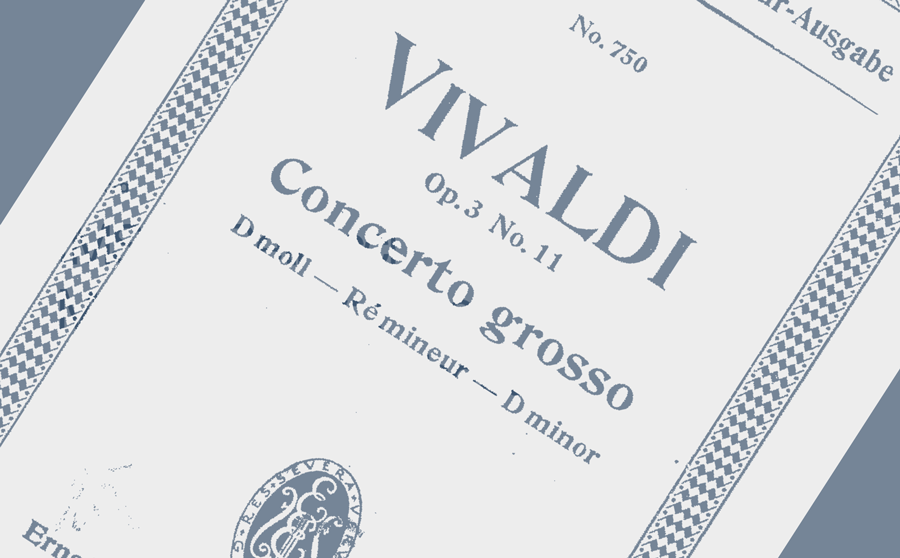The Story Of The Internet’s Number-One Source For Scores
In 2006, a New England Conservatory student named Edward Guo founded the online portal IMSLP, or International Music Score Library, a kind of Wikipedia for musicians. Now the site contains some 350,000 scores and 40,000 recordings from 14,000 composers. The works of composers who have been dead for less than 70 years are not in the public domain and don’t appear on the site. Still, IMSLP is omnipresent enough that I’ve encountered music students who assumed there were no scores to Strauss songs at all, since they weren’t showing up there.
Musicians increasingly take for granted that they can get scores for free. For context, I also spoke with Thomas Tietze, a lawyer for the German publishing house Bärenreiter. While he praised IMSLP for complying with specific requests to take down Bärenreiter scores, he admitted that “we don’t find [the portal] particularly great,” and that his company could still initiate a lawsuit “if necessary.” Surprisingly, I couldn’t find much in the way of articles about IMSLP online. I called Guo recently to talk about his now-essential website.
VAN: How did IMSLP get started?
Edward Guo: I started IMSLP back in January 2006 when I was a composition sophomore at New England Conservatory. I had a lot of free time back then and wanted to do something new. The idea for IMSLP came to me because, when I was a kid in Shanghai, I looked everywhere for full scores to buy but could never find any, even in the biggest bookstores. This was back in 1999. So I thought I’d create a site that would help people who don’t have access to classical music scores for whatever reason.
I had a friend at the time who was a computer science student, and I managed to convince him to code the website based on Wikipedia. He got bored with it after a few days and left the project without finishing the site. Even so, I decided to finish the project myself, and had to learn web programming in a very short amount of time. All in all the first version of the website took half a month to finish. It went public on February 16, 2006. The first versions were pretty ugly though.
In the first few days I uploaded a few scores I found on other websites and a few I scanned, starting with all of Beethoven’s Piano Sonatas (file number one is still Beethoven’s Op.2 No.1). Then I added links on Wikipedia to the IMSLP pages. IMSLP grew fast, much beyond my expectations at the time.
So you studied composition. Do you play any instruments yourself?
Yes, piano and violin. Unfortunately, both pretty badly.
What is your role in this project at the moment?
My official role is as president of the company behind the website, Project Petrucci LLC. These days I spend most of my time managing the many projects we have going on and making sure everything is running smoothly.

The very first score guo uploaded to IMSLP.
How many people earn money with this project?
Roughly 25 right now.
And how many people are working on IMSLP for free?
It depends on how you define “working.” For frequent contributors, we probably have roughly the same number as paid at any given time. The site works like Wikipedia, so it is hard to define this number exactly.
Why do you think some people are skeptical of your project?
The most skepticism I’ve seen comes, unsurprisingly, from music publishers, who have had a complicated relationship with IMSLP. Some music publishers don’t mind IMSLP at all, in fact, some openly admit to using IMSLP for research, whereas in the earlier days there were quite a number who wanted IMSLP gone, like Universal Edition. But over time I think even the publishers who did not like IMSLP have come to accept us as part of the classical music world. We haven’t received any complaints from publishers for quite a while.
Are there lawyers involved in your project who concentrate on legal issues?
Yes, because of the Universal Edition incident, I went on to study law and was a practicing lawyer for five years. We also have a team who review all items added to the site for copyright compliance, lead by an early contributor who is extremely knowledgable in copyright law.
For two years now, you have to wait 15 seconds for a download on imslp, or buy a subscription. How was the feedback after this?
I think there was divided opinion at first, but ultimately people understood that it was necessary for the survival and prosperity of the project. Two years after, I think it was absolutely the correct decision. We’ve completed a few projects since then—a major website redesign and subscription to the Naxos Music Library for all members, among others—but perhaps more importantly there are so many new and exciting projects currently in process. All this would have been absolutely unthinkable before we introduced the subscription model.
Have your page views gone down?
People are being more selective in downloading files, but we really haven’t seen a decrease in the number of visitors.
On imslp you have not only free scores but also free recordings of many pieces. Do you have somebody who takes checks to make sure the recordings are of a certain quality?
Yes, one of our current projects will add a very large number of high quality recordings to the site. The project will also be the first step in our effort to create a high-quality recording library on IMSLP that rivals the score library.

